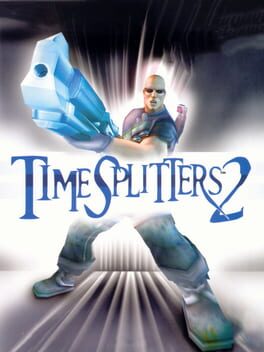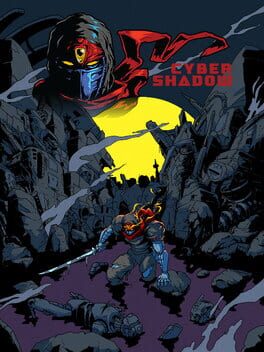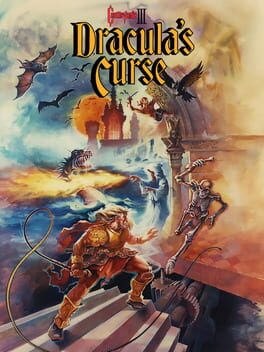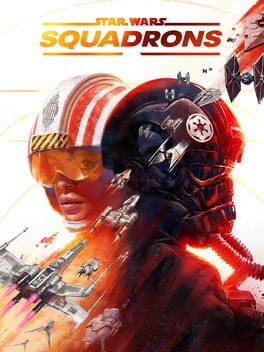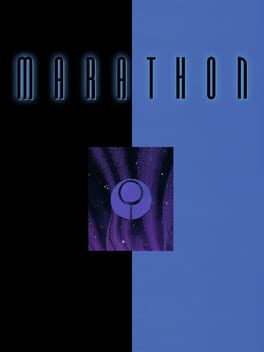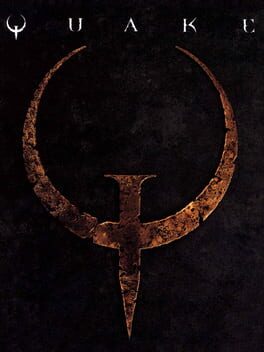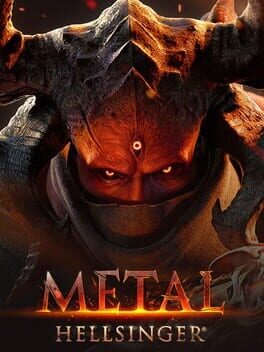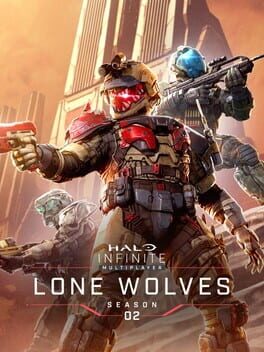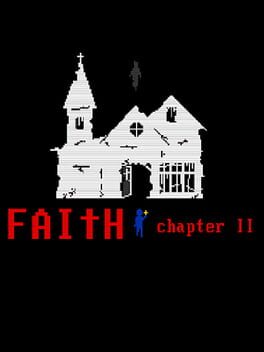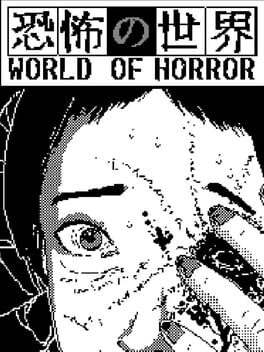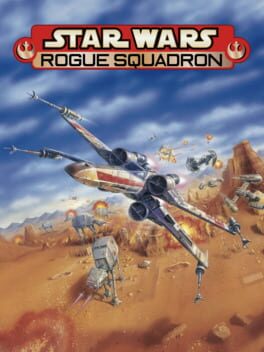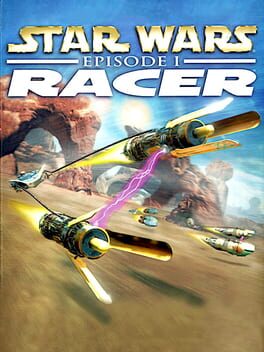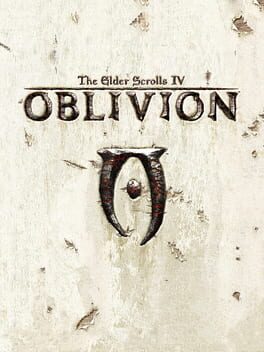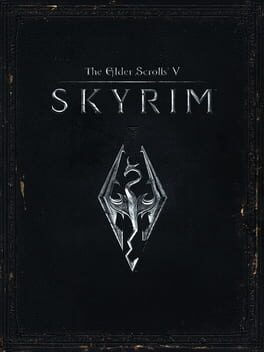HaroKid
2002
First Halo, Now This?
The Goldeneye-esque control might be a turn off for some in 2020, but adjusting is fairly easy and the game's auto-aim is forgiving enough to make the control negligable.
What does make TimeSplitters 2 more difficult to enjoy in a 2020 replay is the lackluster mission design after the third or so level - The game goes from dense and complex in the opening stages to uninteresting, unintuitive, and uninvolved throughout the rest of the bunch.
TimeSplitters 2 does get points for having a dense amount of content by any standard with different challenge modes and bot-enabled multiplayer - TimeSplitters 2 definitely scores some for having custom bind-able controls in 2002; Something modern shooters seem afraid, or just don't care to offer.
The Goldeneye-esque control might be a turn off for some in 2020, but adjusting is fairly easy and the game's auto-aim is forgiving enough to make the control negligable.
What does make TimeSplitters 2 more difficult to enjoy in a 2020 replay is the lackluster mission design after the third or so level - The game goes from dense and complex in the opening stages to uninteresting, unintuitive, and uninvolved throughout the rest of the bunch.
TimeSplitters 2 does get points for having a dense amount of content by any standard with different challenge modes and bot-enabled multiplayer - TimeSplitters 2 definitely scores some for having custom bind-able controls in 2002; Something modern shooters seem afraid, or just don't care to offer.
2021
Cyber Shadow has some clever ideas but ultimately is over-long and not very fun.
I expected more Ninja Gaiden, fast-paced rhythm - After accepting that that's not what the game is, I still find myself being frustrated and not having fun. The bey-blade-on-a-rope power up is Cyber Shadow's coolest component, to a degree that I wish the whole game was built around it.
Most of my other gripes could be solved by being able to customize button mapping - On a controller with 4 face buttons and 4 shoulder buttons, utilizing only 2 buttons throughout the whole game in the name of emulating NES controls is a waste.
I can only recommend sticking to actual Ninja Gaiden if you want to scratch that itch, or checking out The Messenger.
I expected more Ninja Gaiden, fast-paced rhythm - After accepting that that's not what the game is, I still find myself being frustrated and not having fun. The bey-blade-on-a-rope power up is Cyber Shadow's coolest component, to a degree that I wish the whole game was built around it.
Most of my other gripes could be solved by being able to customize button mapping - On a controller with 4 face buttons and 4 shoulder buttons, utilizing only 2 buttons throughout the whole game in the name of emulating NES controls is a waste.
I can only recommend sticking to actual Ninja Gaiden if you want to scratch that itch, or checking out The Messenger.
2020
The sense of speed and cinematic-ness of combat takes a back seat in favor of a daunting but totally immersive level of input - If simulating flying an X-Wing is what you're looking for, Squadrons is a perfect vehicle for that, but if you want to feel like you're taking part in an on-screen battle from the movies, something more arcade in nature ironically feels more authentic.
Getting into the flow of things is satisfying, though the campaign too often feels chore-like and dull, preventing that flow from occurring very frequently - Whether that's a product of frustrating/boring mission design, the reliance on checkpoints vs a "lives" system that would let you jump right back into the action, or the constant restriction of which ships you can pilot vs the actual ships you enjoy piloting.
Either way, Squadrons is a neat little game with some excellent production value that's sure to be a specific cup of tea for a specific group of people.
Getting into the flow of things is satisfying, though the campaign too often feels chore-like and dull, preventing that flow from occurring very frequently - Whether that's a product of frustrating/boring mission design, the reliance on checkpoints vs a "lives" system that would let you jump right back into the action, or the constant restriction of which ships you can pilot vs the actual ships you enjoy piloting.
Either way, Squadrons is a neat little game with some excellent production value that's sure to be a specific cup of tea for a specific group of people.
2021
1994
Marathon offers some neat atmosphere, and was notable for being one of the first few shooters (alongside System Shock) to include mouselook aiming.
Aside from that, there's nothing about Marathon that has aged particularly well, nor is it particularly worth visiting in modern times outside of a curious look into the roots of Halo and Bungie's history with first person shooters.
Nothing about the enemies or weapons is exciting, the level design is unengaging, and the controls have somehow aged awkwardly.
Unfortunately, Marathon is just another one of those weird niche shooters that doesn't have the modern luxury of an excellent source port.
Aside from that, there's nothing about Marathon that has aged particularly well, nor is it particularly worth visiting in modern times outside of a curious look into the roots of Halo and Bungie's history with first person shooters.
Nothing about the enemies or weapons is exciting, the level design is unengaging, and the controls have somehow aged awkwardly.
Unfortunately, Marathon is just another one of those weird niche shooters that doesn't have the modern luxury of an excellent source port.
1996
Quake is often cited as an atmospheric, break-neck speed shooter; Having not played it until now, I believe both descriptors have historically been far overstated.
The Trent Reznor score is of a high quality, but does little to keep the player engrossed in whatever strange mish-mash of an aesthetic Quake seems to be going for - Throughout the 4 supposedly distinct, yet equally brown realms, you start to crave for something more... Energetic. Not just in the music, but the enemies and weapons themselves.
The world of Quake is far more aggressively dangerous than that of Doom, and it feels as though there has been a sort of regression to more bullet sponge-type enemies, and guns that are strictly worse-feeling than their Doom counterparts. The result is something that, unexpectedly, plays more defensively and cautiously than Doom - Lowering the difficulty isn't much of a solution to this issue as it makes everything feel trivialized. There just isn't a sweet-spot for Quake's combat loop to really click.
Grindy combat, dour visuals, underwhelming sound design, and a soundtrack that loses its luster by the second episode culminate in a game that, while technically impressive, feels like a chore to play.
Map design mostly feels like an improvement over Doom, or at least, it feels a lot more streamlined - Levels do feel brief, and easy to navigate in a good way, so much so that the game hasn't bothered including an automap. This is a shame, because while most of the time you won't ever need one, the times where it would be appreciated feel so much worse without it.
While the intro level to each episode is quite enjoyable, The overall quality of Quake's level design varies greatly between each of the individual episodes - 1 Is a solid foundation that 2 immediately underwhelms. 3 is the peak of the entire game, and 4 finishes the game with a mediocre whimper.
Perhaps my understanding of what Lovecraft really is is wrong, but very little about the environments screamed Lovecraftian to me, and maybe only about half of the entire enemy roster felt appropriate. Quake had gone through a tumultuous development cycle of varying ideas, and it really shows. Each realm is a unique flavor! Except, not really. Quake is Lovecraftian Sci-Fi! With maybe some Norse mythology thrown in there? And some other things that kind of just feel like Doom.
The lack of set-piece bosses after the first episode is a sore disappointment, an issue further exacerbated when the game's final moments return with another eldritch big bad in the most anticlimactic way.
Even with all my many gripes with Quake's singleplayer, it's still a mostly enjoyable shooter. While it doesn't control slow by any means, and yes, there certainly is a sort of atmosphere to the game, I think Quake's reputation has set me up for some major disappointment. What has been touted as a fast, aggressive, moody shooter, in reality has manifested itself as a grindy, defensive, and bland one.
Thankfully, the 2021 remaster does support a slew of multiplayer options, where I feel the game more accurately lines up with everything I had heard about it before, and then some. Quake's multiplayer really is breakneck speed. It would be completely overwhelming almost to new players had they not included the fairly competent bot implementation in local multi-player. So, kudos to the developers involved for that.
I find myself not being able to articulate all my thoughts on Quake in a very interesting or engaging way, and I think that reflects how Quake made me feel in general.
The Trent Reznor score is of a high quality, but does little to keep the player engrossed in whatever strange mish-mash of an aesthetic Quake seems to be going for - Throughout the 4 supposedly distinct, yet equally brown realms, you start to crave for something more... Energetic. Not just in the music, but the enemies and weapons themselves.
The world of Quake is far more aggressively dangerous than that of Doom, and it feels as though there has been a sort of regression to more bullet sponge-type enemies, and guns that are strictly worse-feeling than their Doom counterparts. The result is something that, unexpectedly, plays more defensively and cautiously than Doom - Lowering the difficulty isn't much of a solution to this issue as it makes everything feel trivialized. There just isn't a sweet-spot for Quake's combat loop to really click.
Grindy combat, dour visuals, underwhelming sound design, and a soundtrack that loses its luster by the second episode culminate in a game that, while technically impressive, feels like a chore to play.
Map design mostly feels like an improvement over Doom, or at least, it feels a lot more streamlined - Levels do feel brief, and easy to navigate in a good way, so much so that the game hasn't bothered including an automap. This is a shame, because while most of the time you won't ever need one, the times where it would be appreciated feel so much worse without it.
While the intro level to each episode is quite enjoyable, The overall quality of Quake's level design varies greatly between each of the individual episodes - 1 Is a solid foundation that 2 immediately underwhelms. 3 is the peak of the entire game, and 4 finishes the game with a mediocre whimper.
Perhaps my understanding of what Lovecraft really is is wrong, but very little about the environments screamed Lovecraftian to me, and maybe only about half of the entire enemy roster felt appropriate. Quake had gone through a tumultuous development cycle of varying ideas, and it really shows. Each realm is a unique flavor! Except, not really. Quake is Lovecraftian Sci-Fi! With maybe some Norse mythology thrown in there? And some other things that kind of just feel like Doom.
The lack of set-piece bosses after the first episode is a sore disappointment, an issue further exacerbated when the game's final moments return with another eldritch big bad in the most anticlimactic way.
Even with all my many gripes with Quake's singleplayer, it's still a mostly enjoyable shooter. While it doesn't control slow by any means, and yes, there certainly is a sort of atmosphere to the game, I think Quake's reputation has set me up for some major disappointment. What has been touted as a fast, aggressive, moody shooter, in reality has manifested itself as a grindy, defensive, and bland one.
Thankfully, the 2021 remaster does support a slew of multiplayer options, where I feel the game more accurately lines up with everything I had heard about it before, and then some. Quake's multiplayer really is breakneck speed. It would be completely overwhelming almost to new players had they not included the fairly competent bot implementation in local multi-player. So, kudos to the developers involved for that.
I find myself not being able to articulate all my thoughts on Quake in a very interesting or engaging way, and I think that reflects how Quake made me feel in general.
2022
A neat NuDOOM tribute cleverly combined with a rhythm game - A match so natural you don't really think twice about it. Its brevity serves it well and is just engaging enough for its runtime, even if it's bloated and unstimulating motion graphics cutscenes feel like week-long each.
I suspect your enjoyment level will depend on your taste in music; The vast majority of it was definitely serviceable, but I've already forgotten all of it. Unfortunately for being a rhythm game, it fairly quickly becomes static feeling without any exciting or unexpected rhythms. This consistency is probably for the best given you still need to focus on blasting, and yet I find myself disappointed anyway. Each song, and therefore each level ends up feeling more or less the same, which is then compounded by the lack of varied boss fights.
The most surprising thing about this was hearing the System of a Down dude. Worth a download and a session or two in which you'll probably finish the game, but not much else.
I suspect your enjoyment level will depend on your taste in music; The vast majority of it was definitely serviceable, but I've already forgotten all of it. Unfortunately for being a rhythm game, it fairly quickly becomes static feeling without any exciting or unexpected rhythms. This consistency is probably for the best given you still need to focus on blasting, and yet I find myself disappointed anyway. Each song, and therefore each level ends up feeling more or less the same, which is then compounded by the lack of varied boss fights.
The most surprising thing about this was hearing the System of a Down dude. Worth a download and a session or two in which you'll probably finish the game, but not much else.
2019
2020
I didn't expect to functionally "finish" World of Horror as fast as I did - The modular rogue-lite experience is something that's fairly cool and the visually stimulating presentation makes it worth playing, but I can't help but wonder if a single, hand-crafted experience wouldn't be strictly more engaging.
Some of the mysteries aren't the most interesting, and grasping all of the mechanics and UI on the initial playthrough isn't the easiest thing in the world - After the initial playthrough, immediately starting a new run isn't the most exciting prospect once you know you may have to replay some of the same mysteries.
Probably worth checking out on the prospect of being inspired by Junji Ito alone if you're a fan of those works, but I still enjoyed it enough without any prior experience with the mangaka.
Some of the mysteries aren't the most interesting, and grasping all of the mechanics and UI on the initial playthrough isn't the easiest thing in the world - After the initial playthrough, immediately starting a new run isn't the most exciting prospect once you know you may have to replay some of the same mysteries.
Probably worth checking out on the prospect of being inspired by Junji Ito alone if you're a fan of those works, but I still enjoyed it enough without any prior experience with the mangaka.
Rogue Squadron's base starfighter controls are tight and satisfying, and the dialogue/cutscenes are fun and flavorful, but the ship-to-ship combat isn't terribly satisfying or exciting and many of the missions are unforgiving or even straight up boring.
The storymode ends on a deflated note of "nothing", but the few missions that offered a good balance between excitement, challenge, and open map exploration does make the brief playtime of about 3 hours worth it.
The storymode ends on a deflated note of "nothing", but the few missions that offered a good balance between excitement, challenge, and open map exploration does make the brief playtime of about 3 hours worth it.
An exciting racing game that steeps you into one of my favorite Star Wars sequences - The base controls are incredibly tight and satisfying, but I feel the game is let down from true greatness by some very incredibly long tracks with questionable design, and opponent AI that either dominates or is dominated without much in-between.
I can't put my finger on it, but something about the sound design of the PC port seems worse than the N64 version that I grew up with.
Despite its highly disappointing shortcomings, Episode 1 Racer is my favorite of the Nintendo 64 Star Wars titles and a series of games I would love to see brought back with the attention and care it deserves.
I can't put my finger on it, but something about the sound design of the PC port seems worse than the N64 version that I grew up with.
Despite its highly disappointing shortcomings, Episode 1 Racer is my favorite of the Nintendo 64 Star Wars titles and a series of games I would love to see brought back with the attention and care it deserves.
A very funny RPG with some ambition and vision - I love the ugly face models and whacky dialogue a lot.
I don't mind the more "generic" high fantasy setting on-paper, but for how big the world of Oblivion is, a lot of it feels same-y and lacks character. The main quest is mediocre at best, and some of the DLC, like Knights of the Nine, are even worse.
The best questline is da Dark Brotherhood, and any RPG gets points in my book for having a duel arena.
A neat game with ultimately a unique stank to it, though I don't think it does a whole lot that it's 2011 follow-up doesn't do strictly better.
I don't mind the more "generic" high fantasy setting on-paper, but for how big the world of Oblivion is, a lot of it feels same-y and lacks character. The main quest is mediocre at best, and some of the DLC, like Knights of the Nine, are even worse.
The best questline is da Dark Brotherhood, and any RPG gets points in my book for having a duel arena.
A neat game with ultimately a unique stank to it, though I don't think it does a whole lot that it's 2011 follow-up doesn't do strictly better.
